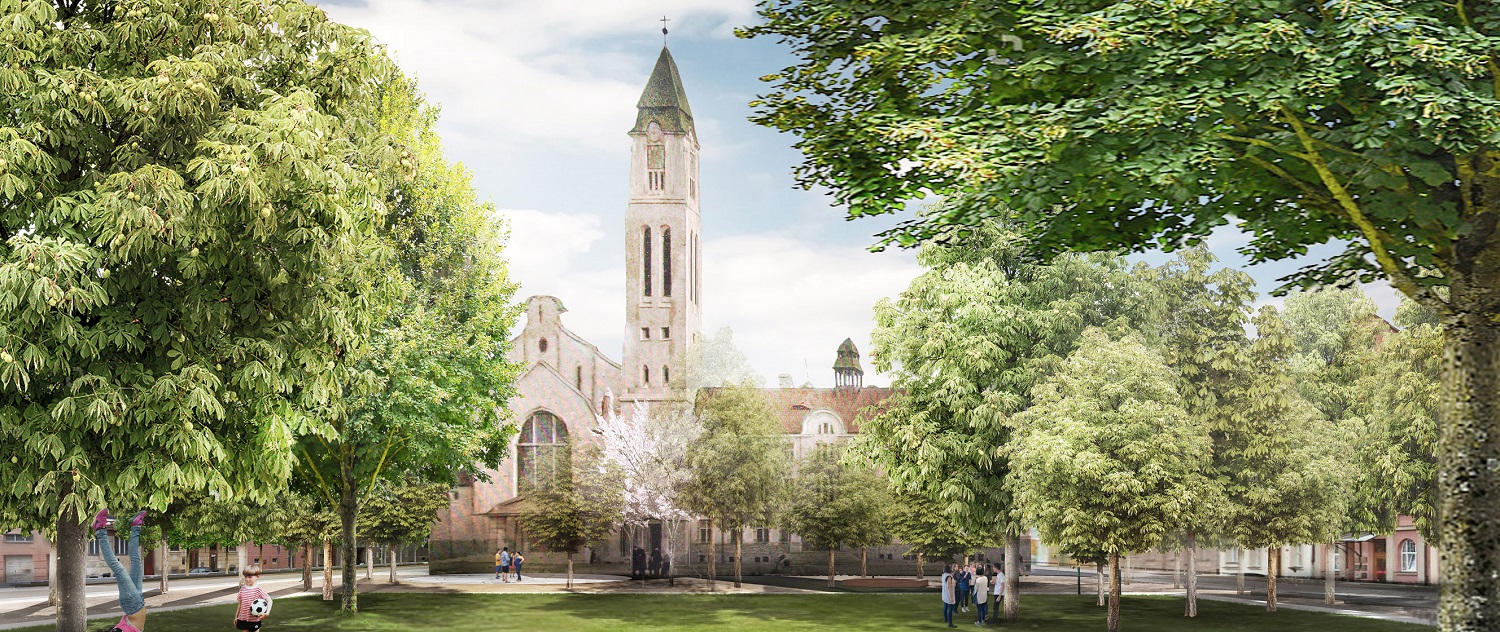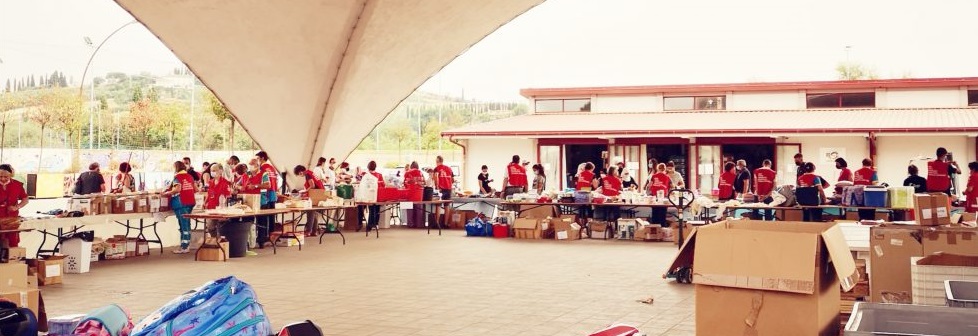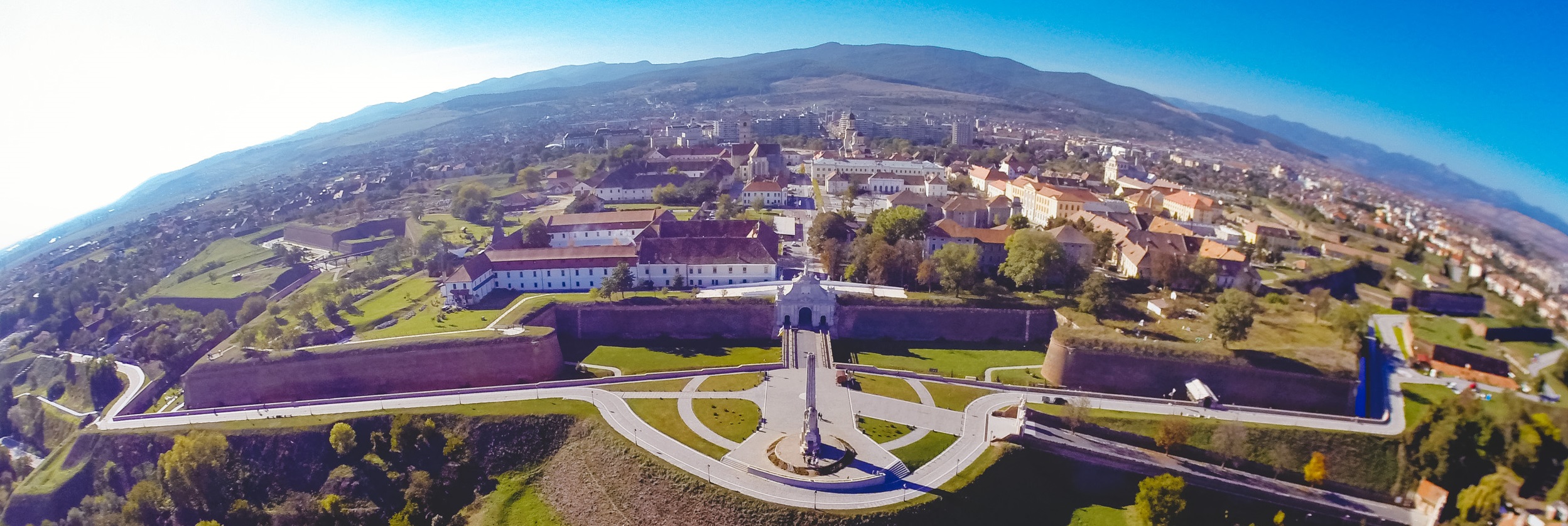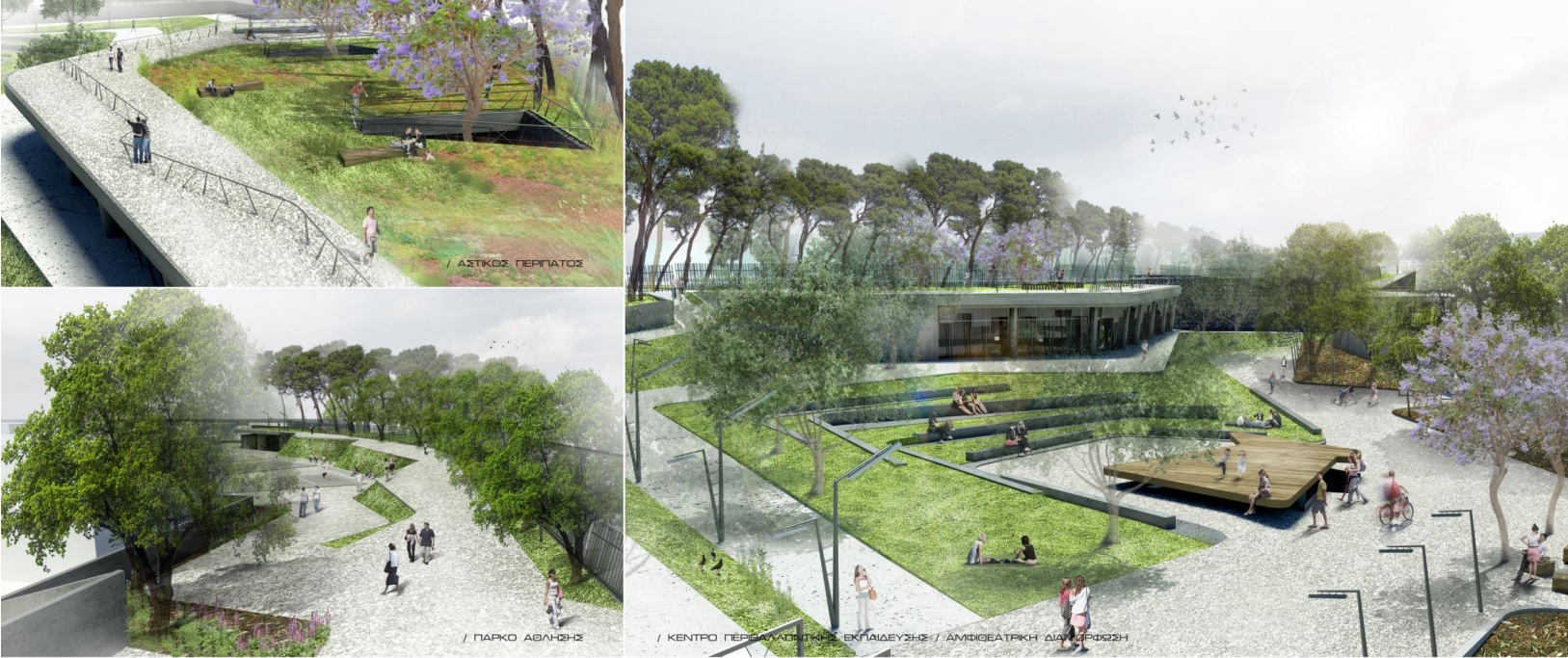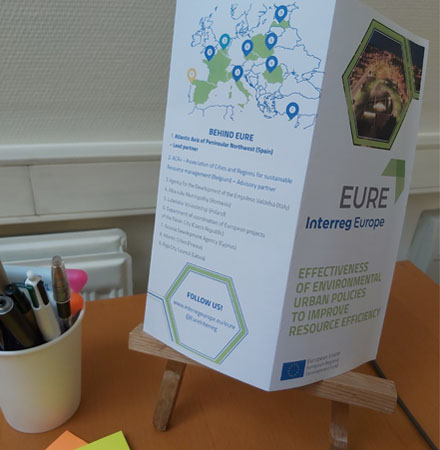To facilitate the analyse of the role of cities of small dimension (less than 20.000 inh) but with influence in sparsely populated areas, the EURE partners identified 4 main topics, related to the action plans:
- Urban resource-efficiency: cities are key players in minimising the use of resources and in developing a circular model. Generally, municipalities provide utilities and control public services for citizens and businesses that influence the majority of resource and energy use and the production of emissions and waste;
- Environmental management performance: this covers air and noise quality, climate adaptation/mitigation, social inclusion, governance for sustainable urban development, and participation;
- Green growth and eco-innovation: with the goal of making the city greener, protecting and increasing biodiversity and the ecosystem services, developing nature-based solutions, eco-innovation experiences and new green economy examples;
- Circular economy: the territory's material and energy flows can be optimised by integrating all urban activities, by involving all the actors (including investors and city residents) and by working with municipalities beyond the city limits.
Within these topics, several urban challenges are standing out, namely:
- Energy transition and renewable energies;
- Recovery of degraded urban areas and decontamination of public soil;
- Water management;
- Sustainable reuse of buildings and sustainable mobility;
- Low carbon economy and green infrastructures;
- Resilient city and eco-innovation;
- Cohesion policy and administrative synergies;
- Waste reduction.
- Smart city concept and solutions;
- Governance for sustainable urban development: communication and cooperation in the territory, the involvement of local stakeholders;
- Demographic crisis;
- Joint management of different funds (i.e.: ERDF, SEF).
These challenges will orientate the whole direction of the EURE project as partners will collect and share good practices related to the specific urban challenges and priorities targeted by their regional policy instruments.




